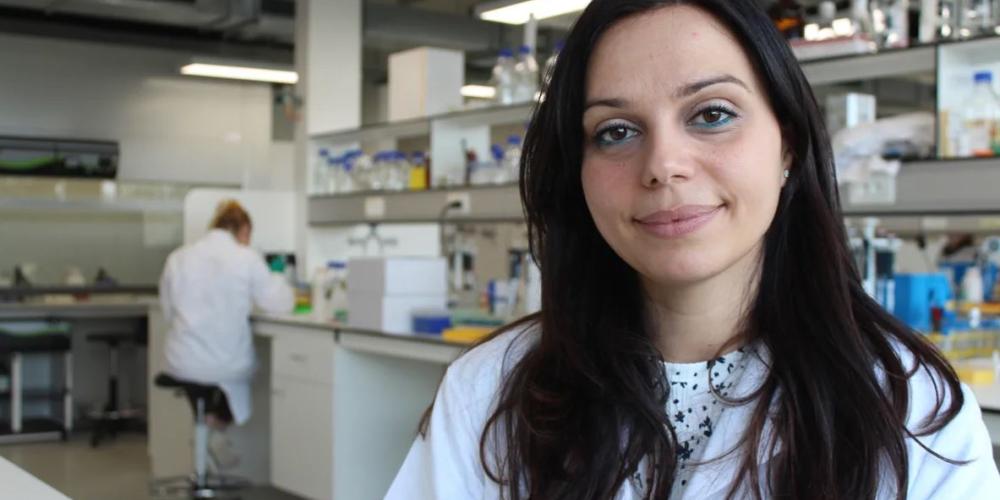
Ground-breaking research into multi-resistant bacteria honoured
Molecular biologist Antonella Fioravanti has won the annual Eos Pipet prize. Fioravanti – of VUB and the Flemish Institute for Biotechnology, VIB – was awarded the prize for her pioneering research into multi-resistant bacteria. The award is presented each year by the science magazine EOS and the Young Academy to the most promising young researcher in Flanders. This is the first time a non-Belgian researcher has won the prize.
“I am a European researcher, made in Italy, but Belgium has been my home for the past six years,” Fioravanti said in a video message. “I’ve been able to carry out my dream research here: studying a notorious bacteria. And I’ve been able to find a treatment for the illness it causes. The Eos Pipet is true recognition for my work.”
Fioravanti developed a method to break the armour of the bacteria that causes anthrax. Existing antibiotics are not very effective against the potentially lethal Bacillus anthracis. Until now, the armour of proteins with which the bacterium envelops itself has proved impenetrable. Last year, Fioravanti discovered that nanobodies found in the blood of camelids – a family of animals including camels, alpacas and llamas – are capable of destroying the armour. “That armour is a kind of exoskeleton for the bacteria,” says Fioravanti. “Without that skeleton, it cannot live.”
When we think of anthrax, we tend to think of anonymous letters containing suspicious white powder. If it is inhaled, it quickly enters the bloodstream and can lead to deadly sepsis in a few days. There are some remedies against Bacillus anthracis, but they are not very effective. Moreover, the bacteria can survive for years and even centuries. It does so by forming spores and waiting in hibernation until the conditions are optimal: humid, warm and nutritious. Nobody really rated Fioravanti’s chances of success.
She is now continuing this treatment using nanobodies. Tests on infected mice have yielded promising results, with all animals tested having recovered. She’s also looking at other pathogens that have similar armour, including certain hospital bacteria. Eventually, her research may lead to a new treatment for infections with these kinds of multi-resistant bacteria. The results of her prize-winning research were published in the leading journal Nature Microbiology last July.
The jury praised Fioravanti for the innovative way she developed her therapy: “It is a fantastic result, not only in the battle against anthrax but also for the treatment of other diseases caused by bacteria with a similar armour. Ultimately, her research could lead to a new treatment for infections with this sort of multi-resistant bacteria.”
Watch Antonella Fioravanti’s reaction to the award here:
- https://youtu.be/zFy2LwvlXn0
- https://www.youtube.com/watch?time_continue=1&v=MGsAGDV4S54&feature=emb_title
Read more about her research here: https://www.wtnschp.be/english/saving-the-world-from-anthrax-with-a-llama/